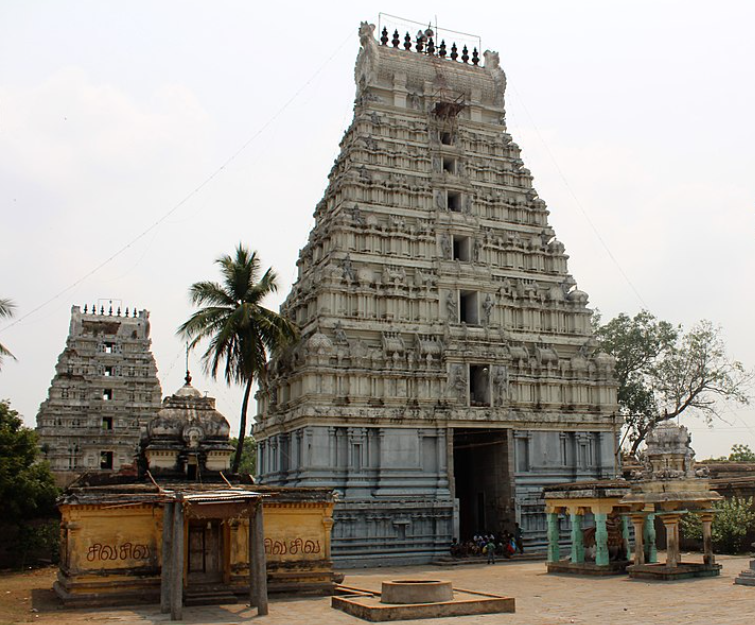In ancient times, cows, which were without horns, suffered harassment from wild animals. Seeking protection, they prayed to Lord Shiva, who blessed them with horns to defend themselves. This divine event took place in this region, named Tiru Aa Mathur (Aa meaning cow), signifying its reverence as the Mother House of Cows. According to Hindu belief, all gods, including Brahmma, Vishnu, Shiva, and goddesses Durga, Lakshmi, Saraswathi, as well as the Devas, reside within the cow's body. This sacred connection elevates the sanctity of the place. At the temple, Lord Abirameswarar is depicted holding the feet of a cow on His head, symbolizing this divine blessing.
Administration History :
The administration of the temple has evolved over the centuries, with significant contributions from various dynasties such as the Pallavas, Cholas, and Vijayanagaras. During the Chola period, land and resources were donated for the temple's upkeep, as recorded in numerous inscriptions. Today, the temple is maintained by a trust, with public contributions supporting its upkeep, including the addition of the new seven-tier Rajagopuram. The temple continues to be a hub of religious activity, with regular poojas and festivals managed by the local temple administration.
